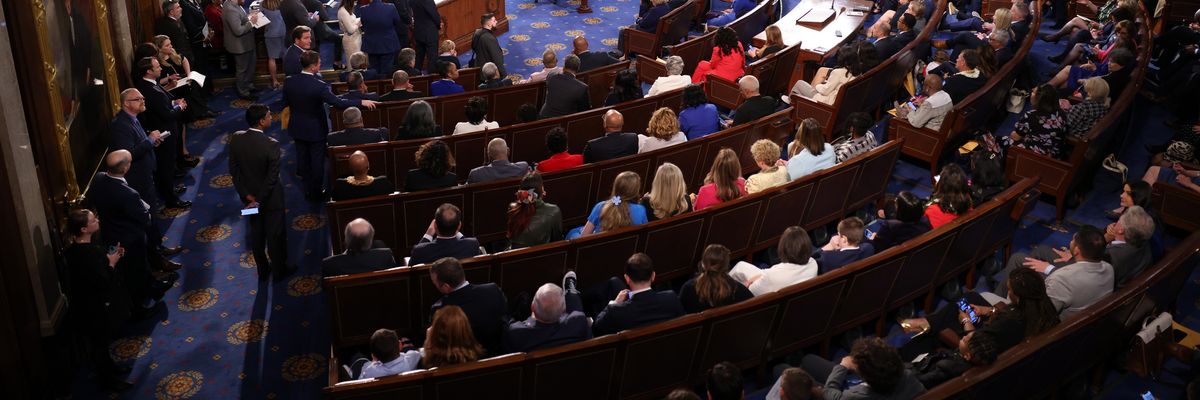The government watchdog Accountable.US reported Friday that a majority of incumbent members in the U.S. House of Representatives filed extensions this year for their 2022 financial disclosures, a revelation that comes as congressional Democrats are leading multiple bills that would ban lawmakers and their relatives from stock trading and other self-dealing.
According to the Accountable.US analysis, 257 House incumbents—or nearly 60% of all lower chamber lawmakers—filed for financial disclosure extensions for last year. Of those 257 lawmakers, 140 were Republicans. Nine out of 10 House members filing for extensions sought the maximum 90-day postponement.
"It's a giant red flag when so many representatives are beating out the S&P 500 despite the most tumultuous market in years, raising questions whether some are taking advantage of their privileged positions," Liz Zelnick, who directs the economic security and corporate power program at Accountable.US, said in a statement.
The Ethics in Government Act of 1978 and the Stop Trading Congressional Knowledge (STOCK) Act of 2012 require annual financial disclosures by members of Congress in order to identify and take action when government officials use their positions of influence for personal gain.
However, critics have long called existing legislation "toothless," while calling for more stringent safeguards against self-dealing by members of Congress.
"The status quo has allowed many in Congress to trade in secret by kicking the can on public disclosure, which only invites corruption and conflicts of interest," Zelnick argued. "The less means and opportunity Congress has to use their influence to game the stock market for personal and family gain, the less it will happen."
Common Dreams noted last September that nearly 100 members of Congress reported trading stock in companies influenced by their committees.
Several proposed measures—including the Transparent Representation Upholding Service and Trust in Congress (TRUST) Act, the Ending Trading and Holdings in Congressional Stocks (ETHICS) Act, and the Bipartisan Restoring Faith in Government Act—would ban members of Congress and their families from owning or trading shares.
"If the MAGA House majority is unwilling to act on popular and bipartisan efforts to prevent self-dealing on Wall Street and restore public trust in government, it would only raise more questions about what they have to hide," said Zelnick.




